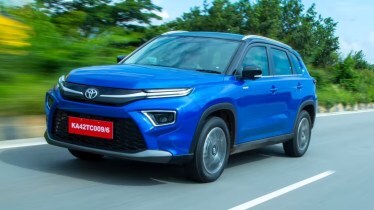The electric wave might be sweeping Auto Inc but Toyota Kirloskar Motor continues to bet big on hybrid technology and alternate fuels. They believe that India still requires multiple technologies to co-exist and hybrids make a strong business case.
Vikram Gulati, Country Head and Executive Vice President, Toyota Kirloskar Motorshared with Financial Express Online, “I think the customers who are going in for hybrids are seeing the benefits of performance, convenience with much better fuel efficiency, and right now they are paying the higher price for it. But as we move forward and as we endeavor along with other OEM, to see this technology is available to all to get into more mass segment at a lower price point.”
According to him, the company aims to try and see that such green technologies can also be pushed down into more mass segments where the price sensitivity becomes even higher.
Gulati stated that the company has always maintained multiple technology pathways and that each country will have its own mix of technologies. This could be for various factors such as demography, per capita incomes, and infrastructure readiness. “And if you’re all doing this in terms of reducing carbon and the impact of climate change, there are two critical issues to be seen. The energy mix of various countries is very diverse. In many countries, it’s gone green, a very high proportion. In many countries, it remains in terms of the electricity mix, still a predominant fossil fuel.
When asked about why Toyota is vocal about hybrid, he replied “Why we talk about multiple technology pathways is because you know you have to do it at scale right now and we can’t wait for tomorrow. It’s not about hybrids or any other technology as a technology versus another technology. Are we saying that one technology can today in the next 5-7 years completely eradicate fossil fuel? Because that is what we want to do. We want to eradicate fossil fuel usage as much as possible at scale and at speed.”
IC-engine to remain dominant technology
The company sold over 2.33 lakh vehicles last year, marking a growth of 46 percent versus around 1.6 lakh vehicles sold a year ago.
In India, he stated that EVs account for just about 2.5% of passenger vehicle space, and hybrid vehicles too have a similar share. This means 95% of all vehicles sold are diesel, petrol, or some other fossil fuel. By 2030, most projections expect the sales of EVs could reach about 15%.
“Let’s say we really push the buck and all OEMs can achieve up to 30% EV sales. That will still be 70% of new IC vehicles sold in the market. Now let’s look at in terms of numbers. What does that mean? Today we would be a 4 million market. By 2030, we expect it to be around 7 to 8 million. Let’s take a conservative figure of 7 million, of this 70% is 4.9 million. That’s not a decrease. That’s a growth. That’s a 25% growth from what it is today. It’s not going to help us reduce fossil fuel consumption. It is not going to help us reduce carbon emissions. In fact, it will be exactly the opposite. It’s not about technologies being intermittent or things picking up and therefore the solution is done, it’s going to be all green technologies on board to tackle the problem of climate change, energy security and carbon mitigation,” he added.
File photo of Vikram Gulati and Toyota Management showcasing the flex fuel vehicle.
It is interesting to note that Toyota Kirloskar Motor will exhibit a wide range of vehicle technologies such as battery electric, strong hybrid electric vehicle, fuel-cell electric vehicle, electrified flexi fuel vehicle as well as CNG vehicles at the upcoming Bharat Mobility Expo.
Taxation
Gulati explained it’s not just about hybrids, but also flex fuels, ethanol, and other greener alternatives. He says that if one looks at global trends, the share of hybrids is growing fast in Nordic countries, and even in China.
At present, EVs attract 5% GST while IC-vehicles including hybrids are subject to 28% GST. Strong hybrids have been a recent introduction in the country, especially in the mass market segment. Hence there is a view that given time and its popularity the government may look at reducing GST on hybrids and thus probably make them more accessible.
Furthermore, he mentioned that globally countries are looking at carbon emissions much more severely and policies are starting to evolve, keeping carbon as the parameter to determine the outcomes.
“We probably will also start to have to look at carbon taxation in the vehicle taxation space, as is being done by most of the countries in Europe, and it is done besides the fact that there is CAFE, so 22 countries out of 29 countries in Europe have some form of carbon taxation for vehicles, either the acquisition stage or at utilisation stage. Countries like Thailand, and Indonesia have carbon-based taxation.”
Gulati stated that these conversations were started in India around 2018. “It’s time to bring out that particular thought and take it to its logical conclusion. It would, you know, completely remove this argument about technology A/B/C/D and totally be based upon merit. It will make greater options available to consumers to choose a better technology, cleaner technology versus traditional petrol and diesel vehicles. It will also, uh, you know, spur market dynamics and help innovation,” he concluded.
